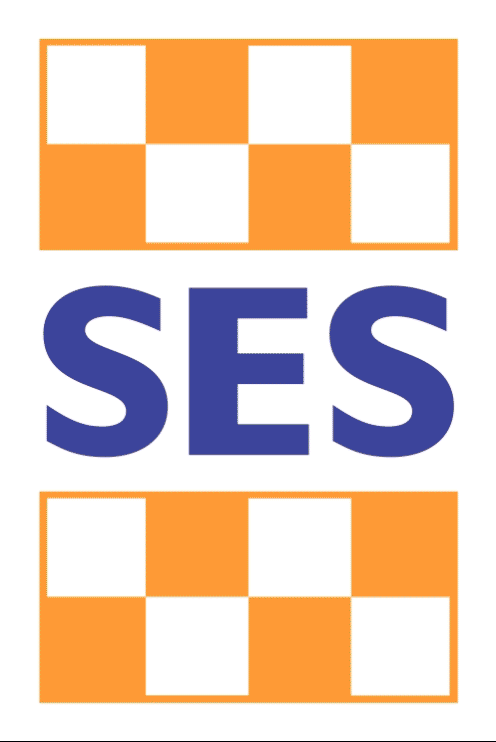If you are indoors during an earthquake
If you are indoors during an earthquake:
-
DROP to the ground; take COVER by getting under a sturdy table or other piece of furniture; and HOLD ON until the shaking stops.
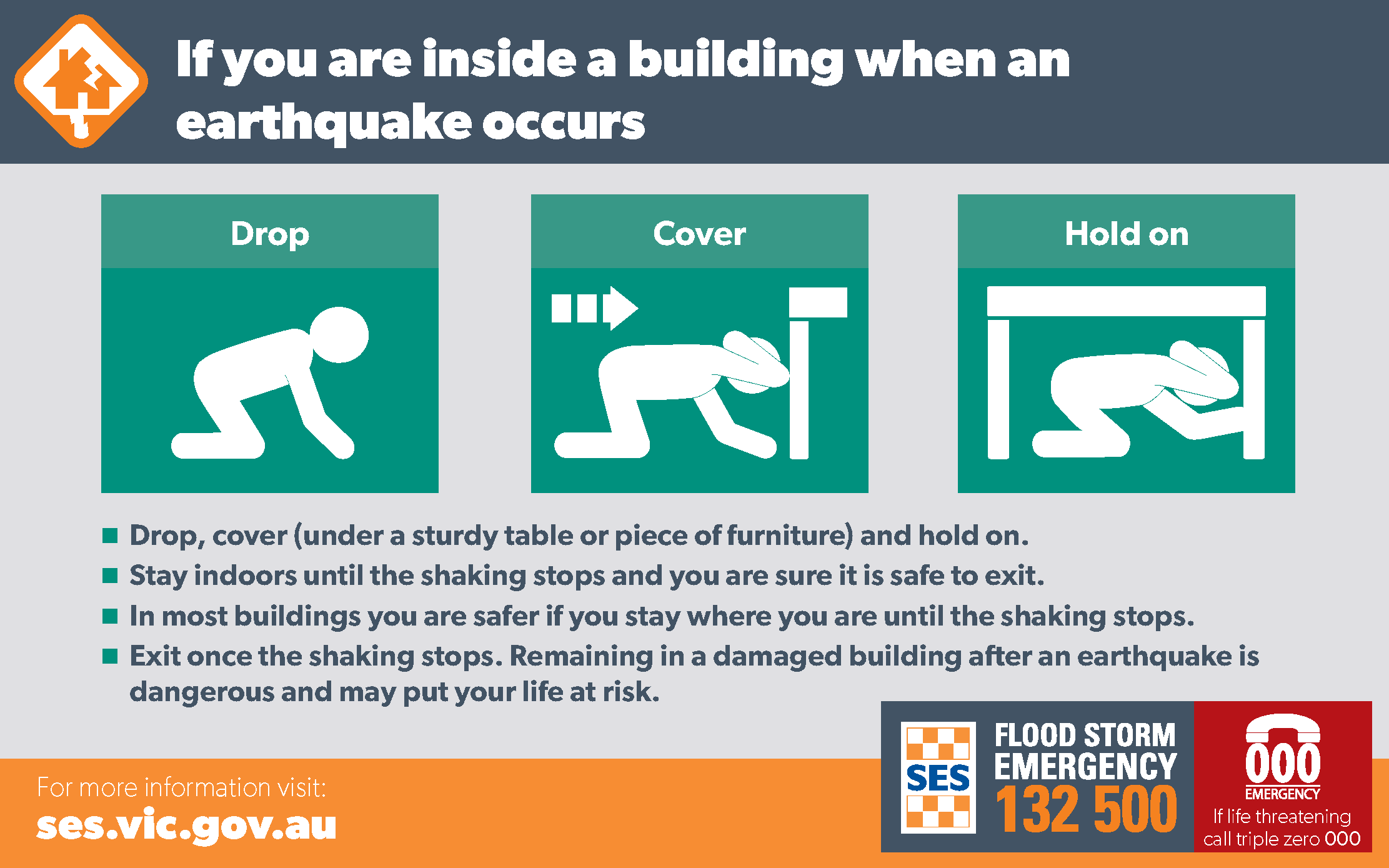
- If there isn’t a table or desk near you, cover your face and head with your arms and crouch in an inside corner of the building.
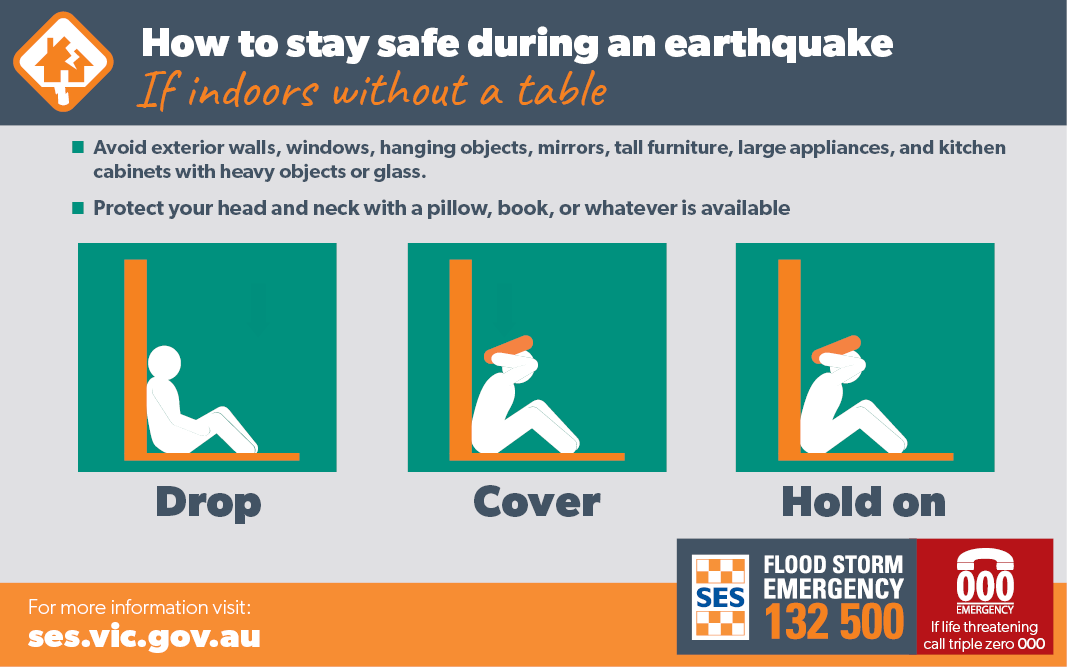
- If you are using a wheelchair, lock and BRAKE your wheelchair, COVER your head and neck with a pillow, book, or whatever is available, and HOLD ON.
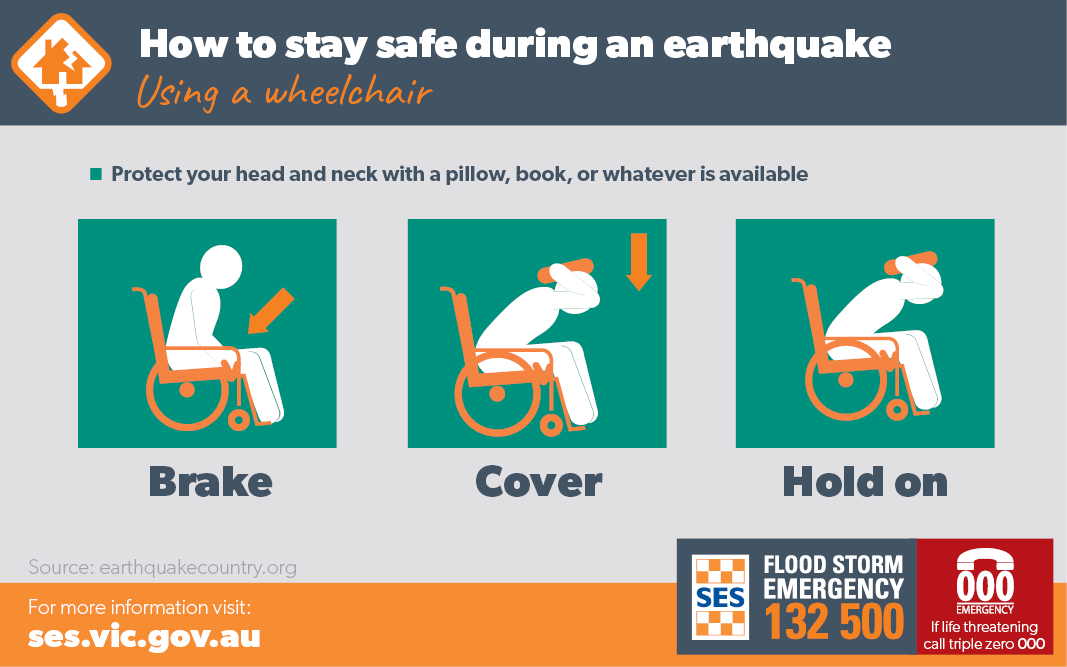
- If you are using a walking frame, lock and BRAKE your walker, COVER your head and neck with a pillow, book, or whatever is available, and HOLD ON.
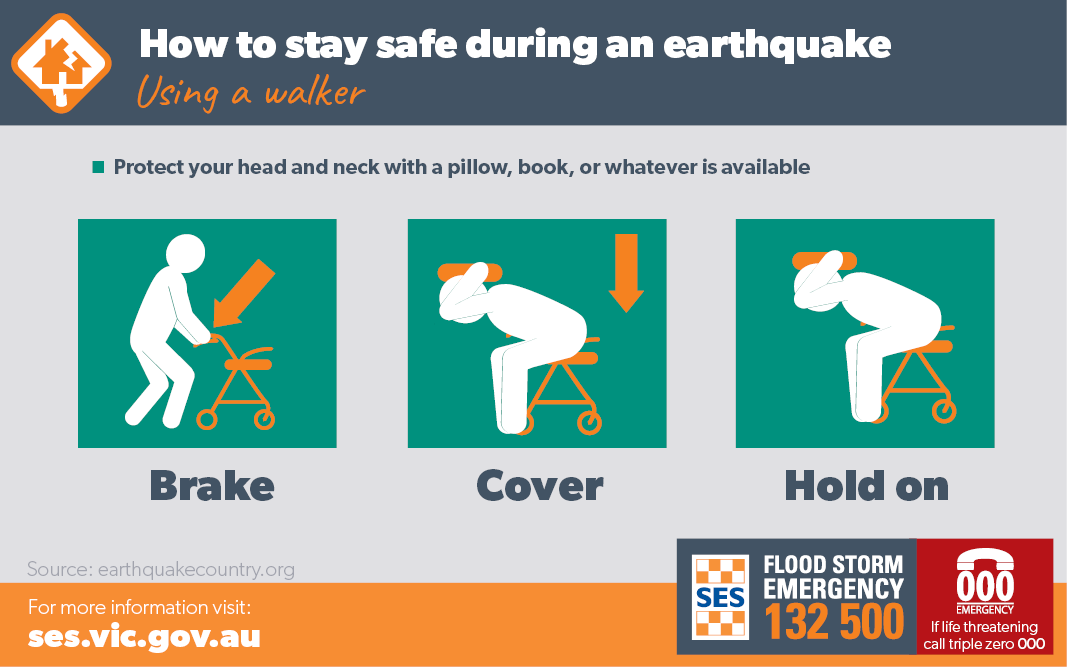
-
Stay in bed if you are there when the earthquake strikes. Hold on and protect your head with a pillow, unless you are under a heavy light fixture that could fall. In that case, move to the nearest safer place.
-
Stay inside until the shaking stops and it is safe to go outside. Do not exit a building during the shaking. Research has shown that most injuries occur when people inside buildings attempt to move to a different location inside the building or try to leave.
-
Stay away from glass, windows, outside doors and walls, and anything that could fall, such as lighting fixtures or furniture.
-
DO NOT use elevators/lifts.
-
Do not use a doorway except if you know it is a strongly supported, load-bearing doorway and it is close to you. Many inside doorways are lightly constructed and do not offer protection.
-
Be aware that the electricity may go out or the sprinkler systems or fire alarms may turn on.
-
People who are Deaf or Hard of Hearing: Prior to an earthquake, identify and test multiple ways to receive warnings and evacuation information.
-
People who are Blind or have Low Vision: Earthquakes can cause items to fall and furniture to shift. Regular sound clues may not be available afterwards. Move with caution.
-
People with Developmental/Cognitive/Intellectual Disabilities: If you have difficulty understanding, remembering, or learning, keep a simple list of what to do and important information with you and in your kits. Practice your plan in advance. If you use augmentative communication supports, include these in your planning.
If you are outdoors during an earthquake
If you are outdoors during an earthquake:
-
Stay there.
-
Move away from buildings, streetlights, and utility wires.
-
Once in the open, stay there until the shaking stops. The greatest danger exists directly outside buildings, at exits and alongside exterior walls.
If you are in a moving vehicle during an earthquake
If you are in a moving vehicle during an earthquake:
-
Stop as quickly as safety permits and stay in the vehicle.
-
Avoid stopping near or under buildings, trees, overpasses, and utility wires.
-
Proceed cautiously once the earthquake has stopped. Avoid roads, bridges, or ramps that might have been damaged by the earthquake.
If you are trapped under debris
Ensure you do the following if you are trapped under debris after an earthquake:
-
Do not light a match.
-
Do not move around or kick up dust.
-
Cover your mouth with a handkerchief or clothing.
-
If possible, tap on a pipe or wall so rescuers can locate you. Shout only as a last resort. Shouting can cause you to inhale dangerous amounts of dust. Use a whistle if one is available.
After an earthquake has occurred
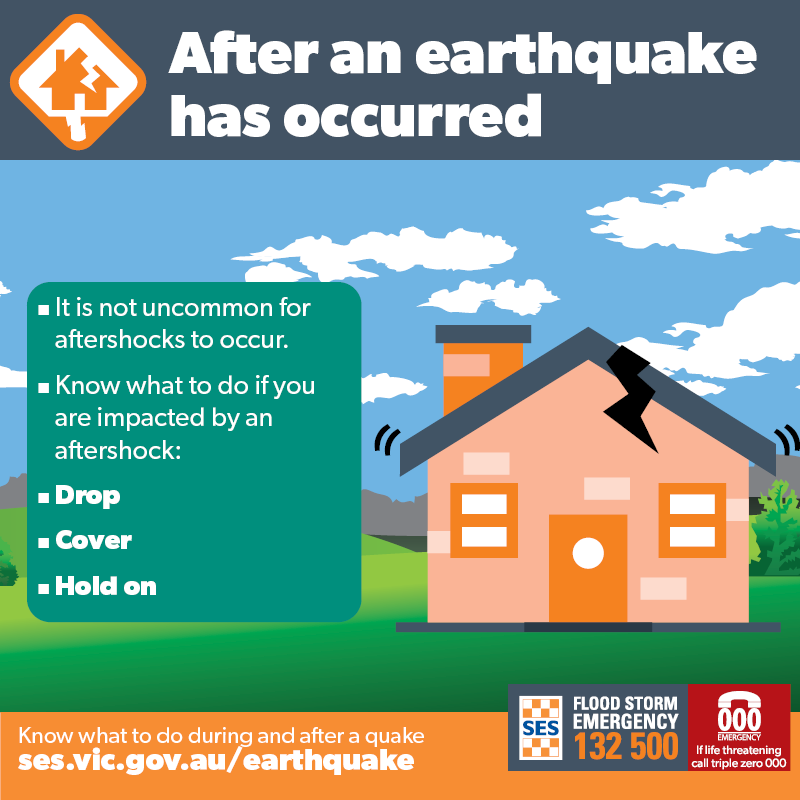
-
It is not uncommon for aftershocks to occur. Know what to do if you are impacted by an aftershock – Drop, Cover and Hold On.
-
Stay safe by avoiding damaged buildings, fallen and damaged trees and powerlines, blocked or damaged roads and other hazards.
-
When cleaning, wear strong boots, gloves and protective clothing and wash your hands and clothes regularly. Protect your health and safety.
-
Electricity, gas and water supplies may be disrupted. If your property has been damaged, have all utilities checked and tested by a licenced technician before you use them.
-
More information on earthquakes, including scientific information, locations and magnitude is available at Geoscience Australia
Emergency contact information
-
For earthquake emergency assistance from VICSES call 132 500.
-
For life-threatening emergencies call triple-zero (000).
-
For general earthquake information, please visit Geoscience Australia or phone 1800 655 739.
Please do not phone emergency services for general advice.

